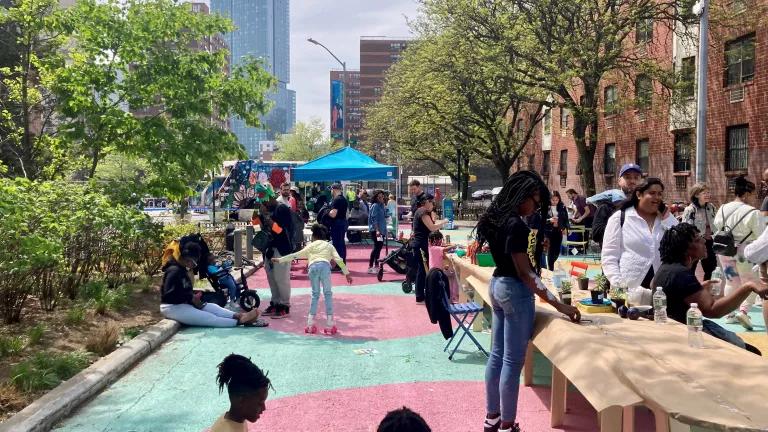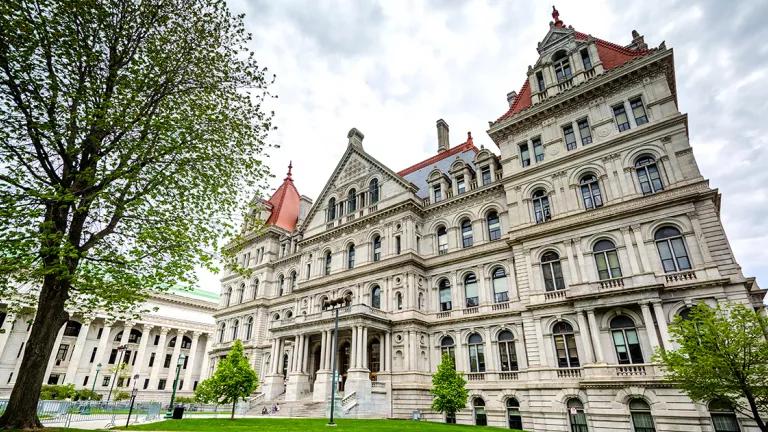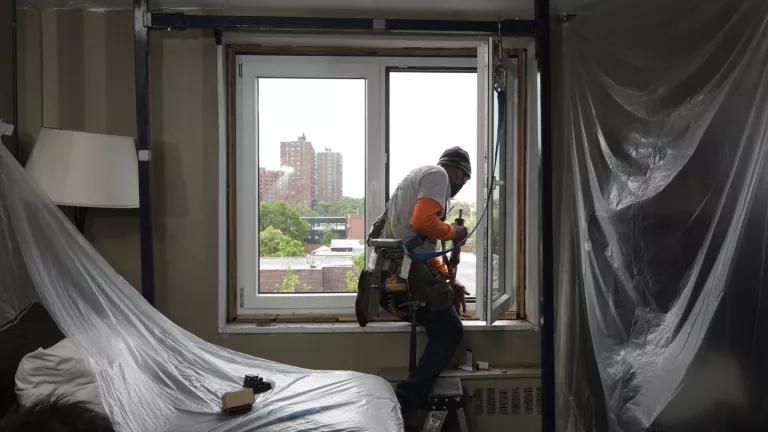Seven Midwest Winners Announced in City Climate Challenge
Bloomberg Philanthropies, the Natural Resources Defense Council and partners today announced that St. Paul, Minneapolis, Chicago, Cincinnati, St. Louis, Indianapolis, and Columbus are among the 20 winning cities in the Bloomberg American Cities Climate Challenge. These Midwest cities join eight others announced earlier this month.
The Bloomberg American Cities Climate Challenge is a $70 million dollar program that will accelerate local efforts to tackle climate change and promote a sustainable future for millions of people across the country. NRDC is proud to join with Bloomberg Philanthropies, Delivery Associates, as well as several other partners, to support the participating cities. The Challenge is focused on addressing the two main sources of pollution in the majority of cities: buildings and transportation.
Cities and their surrounding areas play a pivotal role in climate action—together, they account for more than 70 percent of global greenhouse gas emissions and two-thirds of the world’s energy use. In fact, if U.S. buildings were their own country, they would rank third in the world in energy use. It’s also important because residents of our nation’s cities are on the frontlines of climate change, bearing the brunt of its effects, from heat waves to increasingly frequent flood events. In light of new warnings by a U.N. scientific panel that we could see the worst impacts much sooner than expected if we don’t act swiftly and boldly, cities have a vested interest in doing just that.
The seven Midwest cities chosen to participate in Bloomberg’s American Cities Climate Challenge have laid out concrete plans to cut climate change pollution, improve the health and well-being of their residents, increase economic opportunity, and improve quality of life.
In St. Paul, the city plans to build out 35 mobility hubs, places that will cluster multiple low-carbon transportation options and infrastructure—such as a bus stop, a bike share station, shared car service and/or electric vehicle charging station—into one place. These hubs will eventually bring 90% of residents within 10 minutes of 4-5 cleaner transportation options. The city also aims to achieve greater carbon reduction through energy efficiency retrofits and tune-ups in municipal buildings, and will develop solar workforce training and development programs in conjunction with increasing solar installation opportunities.
Minneapolis will develop Mobility-as-a-Service pilot, offering subscription service for unlimited transit use of shared cars, bikes, scooters, and ride-hailing. The city will coordinate with Metro Transit to plan and implement three to four bus-only lane pilots. Through incentives and a full education and encouragement campaign, the city will encourage nontraditional users to increase the use of low-carbon mobility modes by 10%. Minneapolis will implement a comprehensive citywide solar strategy, including a focus on low-income onsite and community solar garden subscriptions, and looks forward to scaling up existing solar incentive programs, including residential, commercial, and community level programs.
Chicago plans to expand bikeshare to reach 100% of the city, potentially integrating electric bikes and in coordination with the development of pricing models that encourage walking, biking and transit use in high-volume corridors. The city will boost energy efficiency by accelerating energy code compliance and city workforce training, while expanding renewable energy procurement and the solar workforce to meet municipal electricity demand.
In Cincinnati, the city will power 100% of its municipal energy load with renewable energy, while advancing energy efficiency programs for the commercial and residential buildings sectors.
St. Louis plans to deepen community-wide energy efficiency building programs based upon existing data and programs. The city will develop and execute a comprehensive solar strategy for the city. To address transportation goals, St. Louis will also conduct outreach and education about electric vehicles, and offer incentives to accelerate residents’ use of them.
Indianapolis will boost energy efficiency in large, municipal buildings and accelerate it community-wide. The city will deploy the city’s first bus rapid transit line, and expand pedestrian and bicycle infrastructure as a part of a transit oriented development strategy. In order to meet the needs of transit riders, especially those already working with social service agencies, the local transit agency is committing $4 million to upgrade the fare technology system in 2019, connecting funders to riders, and allowing social service agencies to fund the transportation needs of their clients directly.
In Columbus, the challenge will help to develop a workforce program for energy auditors while increasing the number of homes audited. The city will deepen energy efficiency in commercial buildings energy efficiency. To address transit challenges, they will roll out a trip planning app to drive behavioral insights and engagement strategies that encourage use of various modes of shared transportation, while expanding high-frequency transit lines and increasing ridership through an outreach campaign.
In the absence of federal action on climate change, these cities—with more on the way—are united in a common goal of tackling pollution challenges and moving us forward.


